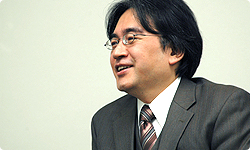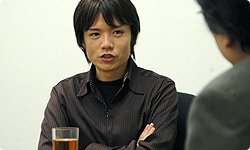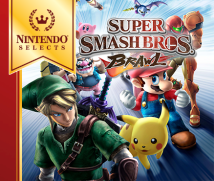2. Great Arrangements True to the Original
So when you asked, was everyone eager to help?
Many were.
The staff at Nintendo helped out in various ways, and as an outsider looking in, I got the impression that everyone was having a good time doing it despite the extra work. Perhaps they enjoyed working on a job that differed from their everyday responsibilities.
I hope so. I also think there was a unique appeal in arranging songs which they were fond of in the past. Personally speaking, I was overjoyed by the one-time-opportunity to work with songs from a myriad of gaming worlds.
You probably know this already, but it’s one of the perks of the job, right?
Absolutely. (laughs) Even members of the development team were listening to the large volume of songs, commenting on the ones they liked and responding more as players than developers.
Game music has a truly unique appeal, doesn’t it? Finding its way into our hearts with the fond memories of when we first played the game it came from.

Right. Which is why you have to be extremely careful when choosing the songs.
Right. You don’t want players complaining about songs that didn’t make the cut.
Well, I’m not sure it matters how carefully you try and pick the songs. Somebody’s going to say something like that anyway.
Right. No matter how many songs you choose.
And you can’t pick your songs simply by looking through the majority of popular songs. There are lots of potential hits that would be overlooked if you fixate only on the popular ones. You have to change your way of thinking and look for songs that can hit the spot.
Good point. Unusual songs somehow leave a lasting impression.
That’s why we spent so much time gathering feedback. Before the start of actual development, we conducted surveys through Nintendo’s mobile site in Japan and read posts to the preview version of our game website, Smash Bros. Dojo.
That’s right. How many responses did you get?
Well, we inquired about things besides music too, but we ended up with about 40,000 responses.
40,000!? Did you read them all?
Sure did. Feedback on song requests led us to some surprising discoveries regarding what songs were actually popular with our players. I was surprised how the players could remember the names of the songs though. Though the songs have titles, you can’t find them by playing the game.
That’s true in most cases. Which means they’re looking up the titles of the songs.
Right. Not satisfied with listening while playing, a surprising number of people are buying and listening to CD compilations of the music. That’s exactly why we couldn’t afford to make any half-baked arrangements.

I see.
Since composing an arrangement means changing part of the original, we were very careful to talk with the musician ahead of time and discuss what could and couldn’t be changed. Though it must be difficult to lay down a great arrangement that retains the original melody.
In other words, it was clear which areas could be changed freely and which areas should not be tampered with.
Right. Making things even more difficult since the appealing part of a song changes with each of those elements.
